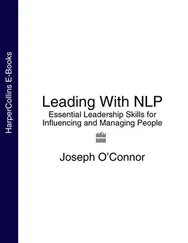John Gray - Children Are from Heaven - Positive Parenting Skills for Raising Cooperative, Confident, and Compassionate Children
Здесь есть возможность читать онлайн «John Gray - Children Are from Heaven - Positive Parenting Skills for Raising Cooperative, Confident, and Compassionate Children» весь текст электронной книги совершенно бесплатно (целиком полную версию без сокращений). В некоторых случаях можно слушать аудио, скачать через торрент в формате fb2 и присутствует краткое содержание. Год выпуска: 1999, ISBN: 1999, Издательство: HarperCollins e-books, Жанр: psy_childs, sci_pedagogy, Психология, на английском языке. Описание произведения, (предисловие) а так же отзывы посетителей доступны на портале библиотеки ЛибКат.
- Название:Children Are from Heaven: Positive Parenting Skills for Raising Cooperative, Confident, and Compassionate Children
- Автор:
- Издательство:HarperCollins e-books
- Жанр:
- Год:1999
- ISBN:978-0-06-133886-1
- Рейтинг книги:4 / 5. Голосов: 1
-
Избранное:Добавить в избранное
- Отзывы:
-
Ваша оценка:
- 80
- 1
- 2
- 3
- 4
- 5
Children Are from Heaven: Positive Parenting Skills for Raising Cooperative, Confident, and Compassionate Children: краткое содержание, описание и аннотация
Предлагаем к чтению аннотацию, описание, краткое содержание или предисловие (зависит от того, что написал сам автор книги «Children Are from Heaven: Positive Parenting Skills for Raising Cooperative, Confident, and Compassionate Children»). Если вы не нашли необходимую информацию о книге — напишите в комментариях, мы постараемся отыскать её.
Children Are from Heaven: Positive Parenting Skills for Raising Cooperative, Confident, and Compassionate Children — читать онлайн бесплатно полную книгу (весь текст) целиком
Ниже представлен текст книги, разбитый по страницам. Система сохранения места последней прочитанной страницы, позволяет с удобством читать онлайн бесплатно книгу «Children Are from Heaven: Positive Parenting Skills for Raising Cooperative, Confident, and Compassionate Children», без необходимости каждый раз заново искать на чём Вы остановились. Поставьте закладку, и сможете в любой момент перейти на страницу, на которой закончили чтение.
Интервал:
Закладка:
To add fuel to this fire, daughters may resist their mothers even more because they were too accommodating when younger.
To develop a sense of self, adolescent girls feel a greater need to fight, defy, or rebel against their mother’s control.
When this is the case, using the five skills of positive parenting will teach the mother to maintain control in a healthier way, without having to raise her voice, make demands, express feelings, or use the threat of punishment. Mothers unknowingly create resistance by smothering children with reasons to act or behave differently.
FATHERS AND DAUGHTERS
Fathers often alienate their daughters by giving solutions and not asking enough questions. Men commonly don’t understand the female need to talk and share, even when their daughters are not looking for advice or help. Men mistakenly assume that their job is always to fix things, when much of the time a little girl, teenager, or woman will just want to talk and be heard.
Since fathers tend to be more concerned with providing for the family, they are often less involved with the day-today details of raising the children. Often this gives little girls the message that their father just doesn’t care.
The truth is, a father cares about his daughter’s well being, and that is one of the reasons why he works so hard. At the same time, since he is not involved with the details, he doesn’t care much about the little things. He is concerned about her general well being, but whether she wears jeans and a ponytail or a skirt with matching barrettes is not that important to him.
This is unfortunate, because when he doesn’t care about the details of her life, she gets the message that he doesn’t care about her. To bond with his daughter, a father needs to put in time asking informed questions and to practice listening without always offering advice.
MOTHERS AND SONS
Mothers often lose the respect of their boys by giving too many orders and then caving in when a boy is unwilling to cooperate. Mothers often complain that their boys will not listen to them. This is usually because they are giving too much advice and direction.
Boys generally need more independence and room to experiment than girls do. They have a greater need to prove what they can do on their own. Too much help is interpreted as a lack of trust, and eventually a boy disconnects and stops listening.
Boys generally need more independence and
room to experiment than girls do.
Mothers tend to use upset emotions or long lectures to control boys. This common mistake will quickly cause a boy to disconnect from her, and she will have even less control.
When a boy is resistant or uncooperative in response to his mother’s request or command, she must be prepared to face his tantrum and put him in a time out. If she simply gives up or waits for dad to come home, she gives up control.
How a husband treats his wife also makes a big difference in the way a son respects his mother. For example, if the mother has made dinner, and the father doesn’t respect the mother’s will and respond right away when the mother calls out that it is dinnertime, the children learn that they don’t have to either.
Children are always watching and imitating. When the father doesn’t respond to the mother’s requests, it is a clear message that the boys don’t have to listen either. This is another good reason why it is important to keep your complaints about your spouse private. When mom complains about dad’s disrespect in front of the kids, she is unknowingly teaching her children that they don’t have to respect her either.
FATHERS AND SONS
Fathers best bond with their sons through action. By doing things together, a son gets a chance to experience his father’s appreciation, admiration, and assistance. While sons and fathers may not need to talk as much, they do need to bond.
Fathers must be careful not to be too critical with their sons or become frustrated with their sons’ deficiencies. A son needs a clear message from his dad that he is normal and acceptable just the way he is.
Fathers must be careful not to demand
too much from their sons.
Boys are naturally more goal oriented. When a boy fails, he needs to know that he can come to his father for understanding, comfort, and appreciation that he did his best.
Fathers must hold back from always pointing out how the child could have done better. Fathers need to remember that all children are different and learn at different rates. Their job is to find children’s strengths and acknowledge them with praise, pride, and admiration.
As fathers learn to control their sons without the need of punishment, a whole new door opens up for a son to bond with his father. No longer does he have to risk punishment from his father for making mistakes. He is free to go to his father for advice and leadership during all his years at home.
TEENS SECRETLY APPRECIATE LIMITS
Being the boss is different from being your child’s best friend. Teens don’t always like what you finally decide, but they will respect and accept it, and they will secretly appreciate you for it. For teenagers, peer pressure is strong. They can more easily resist temptations by blaming their parents.
Although teens can’t honestly say they will be punished by parents who use positive parenting skills, they can say they’ll get into a lot of trouble with their parents.
Teenagers can more easily resist peer pressure
by blaming their parents.
Just because positive parenting doesn’t punish kids, children are not free to misbehave without consequences. For teens to gain more freedoms, they have to earn trust. If they prove to be incapable of respecting the limits of their new freedom, then less freedom is given. A parent may temporarily take away a freedom as an adjustment, but not as a punishment.
A parent may temporarily take away a freedom as an adjustment but not as a punishment.
For example, Tom, a sixteen year old, was allowed to stay out till 1 A.M. on the weekends. Yet he would consistently come home around 2 A.M. He explained that he would just forget, and he didn’t understand why it was such a big deal. His mother, Sarah, explained that at night there is less supervision and one needs to be more mature and responsible. If he could not remember to be home by one, then he was not mature or responsible enough to stay up that late.
Sarah told him that if he were to stay out till 1 A.M., he would have to call home around midnight. This act of responsibility would help him to remember when to come home. Tom continued to forget. After several attempts to solve the problem his mother finally realized that she had made a mistake by giving him too much freedom too soon.
Sarah then said to Tom, “I realize that I made a mistake in letting you stay out till 1 A.M. I know you are doing your best, but I just don’t think you are ready. From now on you can stay out till midnight, and if you do that on time for a while, I will reconsider a 1 A.M. curfew.”
In this way, a freedom was temporarily taken away until Tom earned the necessary trust. Taking away a privilege should only be used as a last resort. Teens should clearly get the message that you have tried a variety of ways to work with them and you have finally concluded that they are just not ready for the increased freedom or privilege.
Parents must be careful they are not making
an adjustment to punish, threaten, or make
their teen more cooperative.
These kind of adjustments should only occur because parents realize that they were giving too much freedom and that they need to go a little slower. A teen can then gradually earn their trust to have more privileges. Keep in mind that adjusting a teen’s privileges should only be done after you have tried other approaches. Remember if you are punishing your teens, they will not openly come to you for support.
Читать дальшеИнтервал:
Закладка:
Похожие книги на «Children Are from Heaven: Positive Parenting Skills for Raising Cooperative, Confident, and Compassionate Children»
Представляем Вашему вниманию похожие книги на «Children Are from Heaven: Positive Parenting Skills for Raising Cooperative, Confident, and Compassionate Children» списком для выбора. Мы отобрали схожую по названию и смыслу литературу в надежде предоставить читателям больше вариантов отыскать новые, интересные, ещё непрочитанные произведения.
Обсуждение, отзывы о книге «Children Are from Heaven: Positive Parenting Skills for Raising Cooperative, Confident, and Compassionate Children» и просто собственные мнения читателей. Оставьте ваши комментарии, напишите, что Вы думаете о произведении, его смысле или главных героях. Укажите что конкретно понравилось, а что нет, и почему Вы так считаете.












